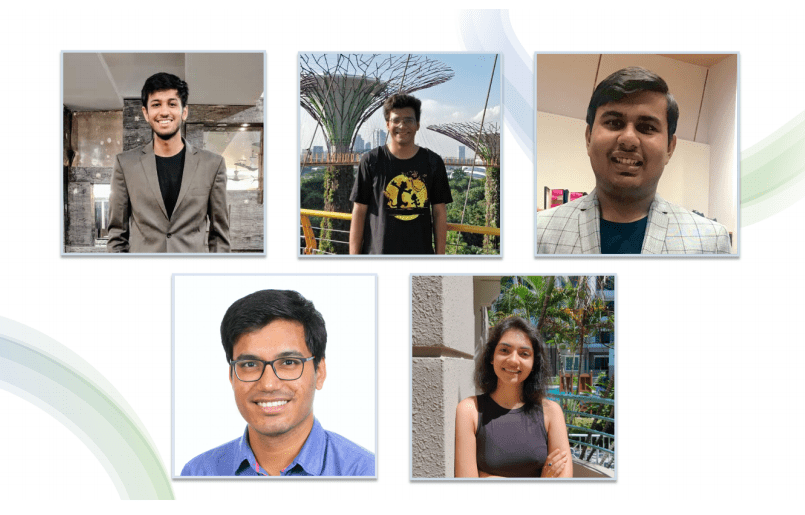
In a global hackathon aimed to bring developers, entrepreneurs and machine learning enthusiasts together to develop modern solutions in a COVID-19 world, students of the Master of Science in Business Analytics programme who formed the team AgroVision: Tanya Talwar, Sourmyadip Ghosh, Akshaye Shenoi, Ashwin Bagree, and Utkarsh Chaturvedi, competed against 30 teams from 16 different countries, and emerged first in the Microsoft Virtual Hackathon.
With an idea centred on improving Singapore’s food security during the COVID-19 pandemic, the NUS MSBA team experimented with unique urban farming techniques using Internet of Things (IOT) and Machine Learning (ML) based solutions.
Equipped with computer vision technology, the team was able to detect the growth of weeds and pests, so that urban farmers can take swift action to better protect their crops.
With a broad problem statement, the team was able to incorporate a creative, integrated solution to solve the problem of weeds in urban farming. On top of tackling the main problem of detecting the incursion of weeds, the team also equipped the product with features like the ability to capture images of the crop using drones and transmitting live telemetry data from sensors.
Using the wide range of data collected, they are able to project a “National Overview”, which allows people to get a bird’s eye view of urban farms, and how these farms performed across the city state. This function is critical for governmental stakeholders, as it provides invaluable high-level insights such as the expected yield of crops.
To AgroVision, large scale urbanisation – especially in Africa and Asia – was well underway. Urban farming sparked their interest as it seemed to be a promising and viable approach to make our country more environmentally sustainable. With the opportunities to create integrated solutions using artificial intelligence and analytics, the urban farming landscape is one that can benefit from these technologies.
With a strong passion for the topic, the team took part in the gruelling 2 month long hackathon, competing with 30 strong teams across the region. The competition was a tough one for the team, especially with a brutal last-minute crunch on submission day.
“The laptop processing our video inexplicably gave up,” said Tanya. “Those were some stressful hours, but we managed to submit (the project) at 11.59PM that night!”
Yet, those hard work eventually paid off. As winners of the competition, the team walked away with a cash prize of USD $3,000. On top of that, the United Nations Development Programme expressed keen interest in working with AgroVision further, to kickstart a test pilot, taking their project to the next step.
“We were confident that we made a strong submission, but of course the joy of learning that we actually won was surreal,” Bagree added. “Since the circuit breaker was lifted, we celebrated with a team dinner that night!”
Other mention: https://www.comp.nus.edu.sg/news/3433-2020-microsoft-azure/